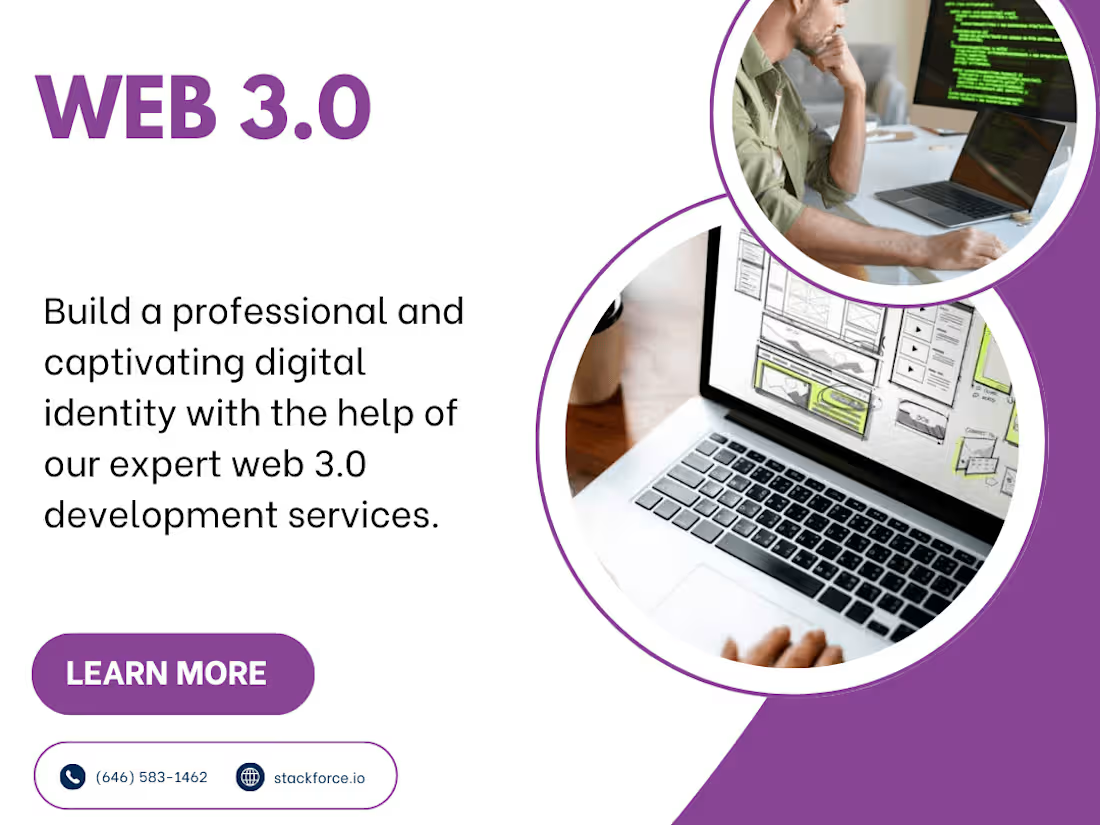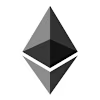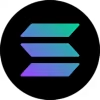
Blockchain developmentNicolas Koriakos
I offer comprehensive Web3.0 development services, delivering secure, decentralized applications (DApps) with smart contract integration, blockchain connectivity, and seamless wallet support. My approach focuses on building user-friendly, scalable solutions while ensuring top-notch security and transparency. What sets me apart is my deep understanding of blockchain ecosystems and commitment to delivering future-proof, decentralized solutions tailored to client needs.
FAQs
Web3.0 refers to a decentralized web where applications (DApps) run on blockchain technology, removing intermediaries and giving users more control over their data. Unlike traditional web apps, Web3.0 apps are decentralized, rely on smart contracts, and often involve digital assets like tokens or cryptocurrencies.
The development timeline depends on the project's complexity, including the blockchain selection, smart contract functionality, and any custom features. Typically, a standard DApp project can take 8-12 weeks, while more advanced solutions may take longer.
Yes, gas fees are required for deploying and interacting with smart contracts on most blockchains (like Ethereum). These fees vary depending on the network's traffic and transaction complexity. Lower-cost blockchains like Polygon or Binance Smart Chain can help reduce fees.
I follow industry best practices for writing secure smart contracts, including rigorous testing on testnets and performing audits (either in-house or through third parties) to identify and fix vulnerabilities before deployment.
Once deployed, smart contracts are immutable on the blockchain, meaning they cannot be changed. However, I can build upgradeable smart contracts or include a proxy pattern to allow for future updates and improvements without redeploying everything.
Yes, I can create custom tokens (ERC-20, ERC-721, or ERC-1155) for various use cases like Initial Coin Offerings (ICOs) or NFTs. These tokens will be integrated into the DApp and optimized for user interactions.
The blockchain choice depends on your project’s requirements, such as transaction volume, gas fees, and scalability. Ethereum is a popular choice for DApps, but alternatives like Binance Smart Chain, Polygon, or Solana can offer lower costs and faster transactions.
Users can interact with your DApp through decentralized wallets like MetaMask or Trust Wallet, which allow them to securely connect, authenticate, and sign transactions on the blockchain.
Post-launch support is included in my services. If a bug is found, I will work to resolve it quickly. If needed, I can redeploy smart contracts or make updates using upgradeable contract patterns.
Yes, I offer ongoing support to ensure your DApp runs smoothly, including bug fixes, performance optimization, and updates. I can also provide additional services like feature expansion or security monitoring.
Nicolas's other services
Starting at$150 /hr
Tags
Ethereum
Rust
Solana
Solidity
Blockchain Developer
Fullstack Engineer
Smart Contract Engineer
Service provided by

Nicolas Koriakos Dover, USA

Blockchain developmentNicolas Koriakos
Starting at$150 /hr
Tags
Ethereum
Rust
Solana
Solidity
Blockchain Developer
Fullstack Engineer
Smart Contract Engineer
I offer comprehensive Web3.0 development services, delivering secure, decentralized applications (DApps) with smart contract integration, blockchain connectivity, and seamless wallet support. My approach focuses on building user-friendly, scalable solutions while ensuring top-notch security and transparency. What sets me apart is my deep understanding of blockchain ecosystems and commitment to delivering future-proof, decentralized solutions tailored to client needs.
FAQs
Web3.0 refers to a decentralized web where applications (DApps) run on blockchain technology, removing intermediaries and giving users more control over their data. Unlike traditional web apps, Web3.0 apps are decentralized, rely on smart contracts, and often involve digital assets like tokens or cryptocurrencies.
The development timeline depends on the project's complexity, including the blockchain selection, smart contract functionality, and any custom features. Typically, a standard DApp project can take 8-12 weeks, while more advanced solutions may take longer.
Yes, gas fees are required for deploying and interacting with smart contracts on most blockchains (like Ethereum). These fees vary depending on the network's traffic and transaction complexity. Lower-cost blockchains like Polygon or Binance Smart Chain can help reduce fees.
I follow industry best practices for writing secure smart contracts, including rigorous testing on testnets and performing audits (either in-house or through third parties) to identify and fix vulnerabilities before deployment.
Once deployed, smart contracts are immutable on the blockchain, meaning they cannot be changed. However, I can build upgradeable smart contracts or include a proxy pattern to allow for future updates and improvements without redeploying everything.
Yes, I can create custom tokens (ERC-20, ERC-721, or ERC-1155) for various use cases like Initial Coin Offerings (ICOs) or NFTs. These tokens will be integrated into the DApp and optimized for user interactions.
The blockchain choice depends on your project’s requirements, such as transaction volume, gas fees, and scalability. Ethereum is a popular choice for DApps, but alternatives like Binance Smart Chain, Polygon, or Solana can offer lower costs and faster transactions.
Users can interact with your DApp through decentralized wallets like MetaMask or Trust Wallet, which allow them to securely connect, authenticate, and sign transactions on the blockchain.
Post-launch support is included in my services. If a bug is found, I will work to resolve it quickly. If needed, I can redeploy smart contracts or make updates using upgradeable contract patterns.
Yes, I offer ongoing support to ensure your DApp runs smoothly, including bug fixes, performance optimization, and updates. I can also provide additional services like feature expansion or security monitoring.
Nicolas's other services
$150 /hr






